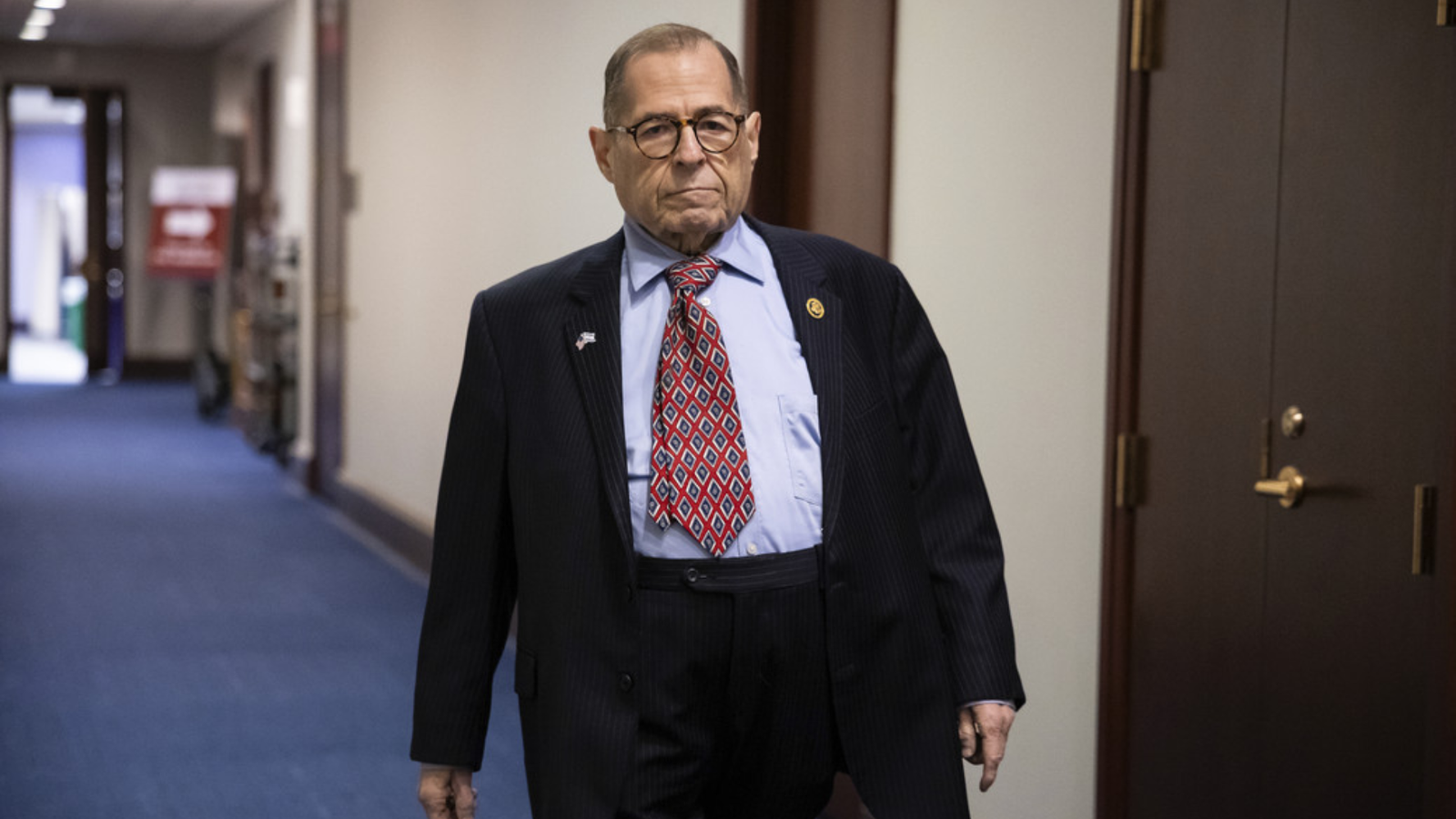
After more than three decades in Congress, New York Democrat Rep. Jerrold Nadler has announced he will not seek re-election, marking the end of an era for one of the longest-serving progressive lawmakers in the House of Representatives.
Nadler, who has represented Manhattan’s wealthy 12th District since 1992, has been one of the loudest and most consistent opponents of President Donald Trump.
His decision to step down after 34 years highlights the growing leadership vacuum inside a Democratic Party that is fractured, directionless, and increasingly beholden to its radical far-left wing.
At 78 years old, Nadler admitted he was hesitant to walk away from a congressional career that had given him national prominence and influence. Yet, according to The New York Times, he was ultimately “persuaded it was time for a changing of the guard.”
This is the same language Democrats used when former President Joe Biden was pressured into abandoning his 2024 re-election bid. Biden was convinced to “pass the torch” to Vice President Kamala Harris — only for Harris to squander the opportunity, extinguishing what little energy Democrats had left.
Her disastrous campaign collapsed in real time, as the party lost the White House, the Senate, and the House to Republicans in a political rout.
Nadler, watching this implosion, said it made him rethink his own role as an aging Democratic fixture. He noted that he had already been pushed aside once this year, forced to surrender his leadership of the powerful House Judiciary Committee. “Watching the Biden thing really said something about the necessity for generational change in the party, and I think I want to respect that,” Nadler explained. In his view, it was time for a younger, fresher Democrat to attempt to carry the banner. “Maybe they can do better, maybe help us more,” he said, sounding far from convinced himself.
The irony is that Nadler’s departure may deepen the Democrats’ problems instead of fixing them. The party has struggled for years to balance its older establishment figures with the increasingly radical demands of its activist base.
Nadler himself was no moderate — he helped lead the impeachment crusade against Trump and consistently aligned with the progressive wing of the party.
Yet he still represents an older guard that, for many leftists, has not gone far enough on issues like climate policy, Israel, and social spending. His hint that “other aging Democrats ought to consider” stepping aside was seen as a thinly veiled shot at Senate Majority Leader Chuck Schumer, another New York power broker who has faced increasing hostility from the far left over Gaza and foreign policy.
What stands out is Nadler’s parting shot at Trump. Even as he announced his retirement, Nadler repeated his decades-long smear of the former president, warning about Trump’s so-called “incipient fascism.” This is the same tired language Democrats have been using since 2016, and it has lost much of its force with the American public.
Voters are far more concerned with inflation, crime, immigration, and foreign policy failures than with Democratic talking points about “fascism.”
For Nadler, stepping down may be an attempt to leave on his own terms, but it is also an admission that the Democratic Party has no clear plan for the future.
The generation of leaders that dominated for decades — Biden, Pelosi, Schumer, Nadler — is fading, yet the younger replacements have proven ineffective, radical, or both. Kamala Harris’ failed campaign showed how weak the party’s bench truly is, and Nadler’s resignation underscores just how fragile Democratic leadership has become.
Republicans, meanwhile, are moving full steam ahead under President Trump and Vice President JD Vance, with a renewed sense of purpose and clear priorities. Nadler’s exit is just the latest reminder that the Democratic Party, consumed by infighting and bad leadership, is in retreat. After 34 years, Nadler is passing the torch — but there may be no one left in his party capable of carrying it.

